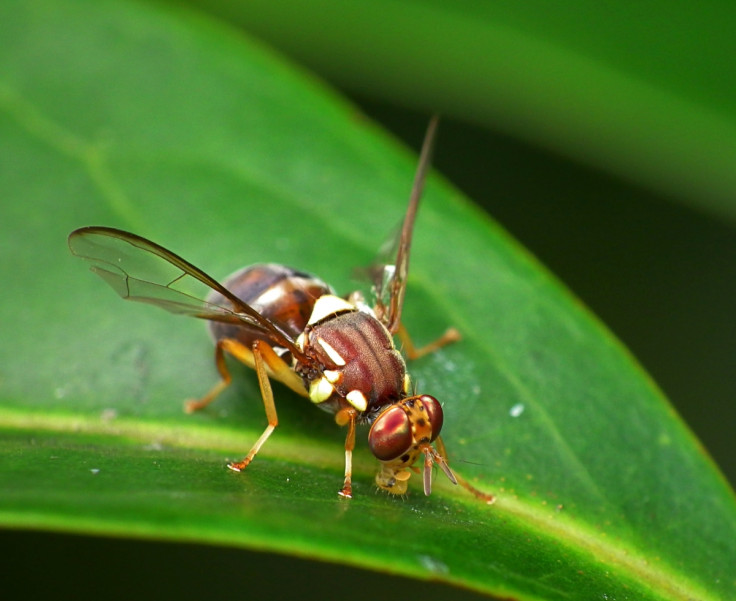Flyagra: Scientists discover way to restore sexual motivation in flies

A team of scientists have discovered a way to reverse the decline in sexual motivation in flies which comes with age.
The study, which was published in Nature Communications, says that the researchers have identified a small group of neurons in the brains of elderly male drosophila flies – more commonly known as fruit flies – which regulate their sexual desire. As with most species, sex drive wanes with age.
Previous research had identified dopamine as the neurotransmitter linked to sexual desire but it had not been determined how the compound controlled it.
However, the team led by Tsai-Feng Fu of the National Chi Nan University, Nantou, Taiwan, has found that by restoring dopamine levels in the aforementioned cluster of neurons, the aged fly begins to show signs of more frequent courtship behaviour.
The study reads: "We find that increasing dopamine levels in a subset of cells in the ... neuronal cluster is necessary and sufficient for increased sustained courtship in both young and aged male flies.
"Our results indicate that preventing the age-related decline in dopamine levels in ... neurons alleviates diminished courtship behaviours in male Drosophila. These results may provide the foundation for deciphering the circuitry involved in sexual motivation in the male Drosophila brain."
However, it remains unclear whether other species have a similar mechanism as this specific fly, but it does give scientists a better understanding of sexual motivation in neurobiology.
© Copyright IBTimes 2025. All rights reserved.





















